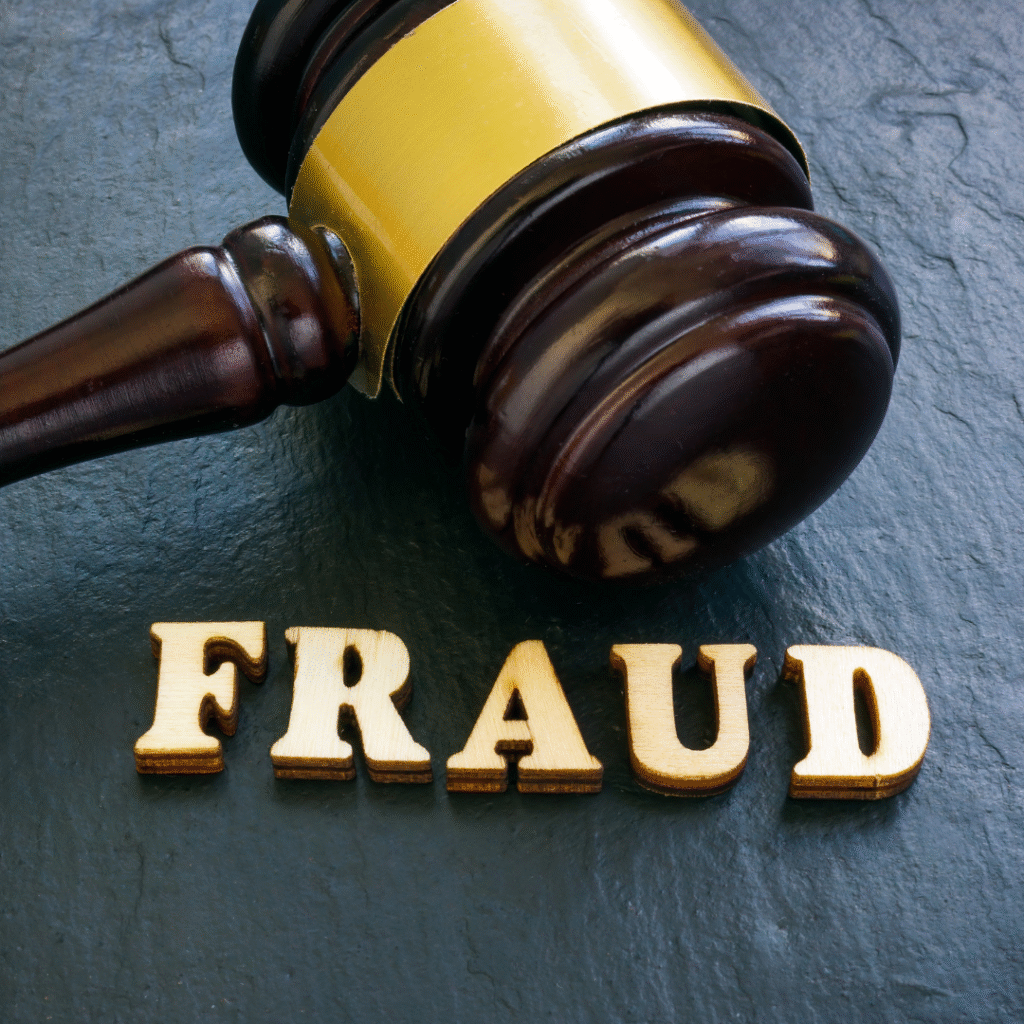DOJ Seeks $11M in Civil Forfeiture Over Miami DME Fraud Case

August 22, 2025 | JacobiJournal.com — Federal prosecutors are moving to seize nearly $11 million in assets tied to an alleged Miami DME fraud scheme that billed Medicare for over $33 million in medically unnecessary equipment. The U.S. Department of Justice (DOJ) says the case highlights a growing enforcement focus on healthcare fraud in the durable medical equipment sector. Miami DME Fraud Involving Unnecessary Billing The DOJ’s civil forfeiture complaint alleges that two Miami-based suppliers submitted false claims for orthotic braces and other devices that patients did not need or never received. Prosecutors say these actions violated federal healthcare fraud statutes and exploited taxpayer-funded programs. DOJ Traces Fraud Proceeds to $11 Million in Assets Investigators allege the targeted funds in this Miami DME fraud case were routed through multiple accounts and shell companies to obscure their origin. The DOJ is seeking to seize the money as proceeds of the fraudulent billing scheme. Federal Crackdown on Miami DME Fraud Schemes The DOJ has intensified enforcement actions against Miami DME fraud operations, citing the sector’s high risk for abuse. Officials say these cases protect Medicare’s financial integrity and deter future fraudulent billing practices. Source: U.S. Department of Justice. FAQs: About Miami DME Fraud What is Miami DME fraud? It refers to schemes in Miami involving durable medical equipment suppliers who bill Medicare for unnecessary or unprovided devices. How does civil forfeiture apply to Miami DME fraud cases? Civil forfeiture allows the government to seize assets tied to the fraud, even without a criminal conviction, if it can prove the connection in court. Why is Miami a focus for DME fraud enforcement? Miami is a high-priority area for fraud investigations due to the concentration of DME suppliers and history of large-scale Medicare fraud cases. Stay informed on major healthcare fraud cases and legal developments. Subscribe to JacobiJournal.com for exclusive updates, expert insights, and in-depth analysis. 🔎 Read More from JacobiJournal.com:
DOJ Seeks $11M in Civil Forfeiture Over Miami DME Fraud Scheme

August 8, 2025 | JacobiJournal.com — The Department of Justice has filed a civil forfeiture complaint to recover nearly $11 million in alleged proceeds from durable medical equipment (DME) fraud involving two Miami-based clinics. Authorities claim that Vida Med Center LLC and Med-Union Medical Center fraudulently billed Medicare for over $33 million in medically unnecessary DME claims between 2020 and 2022. According to the DOJ, the clinics operated a kickback-driven scheme in which patients were prescribed braces and orthotic devices that were not medically necessary and often never delivered. These services were submitted as reimbursable to Medicare using falsified documentation and physician approvals. Civil Forfeiture Sought in DME Fraud Scheme Federal investigators tracked the fraudulent proceeds through multiple financial accounts and shell entities, allegedly used to obscure the origin of the funds. The civil forfeiture action, filed in the Southern District of Florida, aims to recover approximately $10.9 million in assets, including luxury vehicles and real estate tied to the scheme. This case is part of a broader initiative by the DOJ and the Medicare Fraud Strike Force to curb fraudulent billing in the durable medical equipment sector. Authorities say DME fraud schemes frequently exploit vulnerable Medicare beneficiaries and drive up public healthcare costs. Pattern of Abuse in DME Billing Both clinics have come under scrutiny for their roles in a growing pattern of DME fraud forfeiture actions emerging nationwide. The use of deceptive marketing, forged prescriptions, and aggressive billing tactics has led to increased oversight of DME suppliers and prescribing physicians. The DOJ emphasized that civil forfeiture serves as a powerful tool to disrupt financial incentives behind Medicare fraud without waiting for a criminal conviction. What’s Next? The civil action does not require criminal charges to proceed but may lead to future indictments if investigators uncover further evidence of conspiracy or wire fraud. Meanwhile, regulators are urging healthcare providers to tighten compliance protocols and ensure documentation aligns with Medicare requirements. The DOJ’s pursuit of assets in this case signals renewed focus on financial recovery alongside traditional enforcement methods. For more on healthcare fraud enforcement, visit the U.S. Department of Justice Health Care Fraud Unit. FAQs: What to Know About DME Fraud Forfeiture What is DME fraud forfeiture? DME fraud forfeiture refers to the government’s civil action to seize assets gained through fraudulent durable medical equipment billing, even without a criminal conviction. How much was billed in the Miami DME fraud case? The two clinics allegedly billed Medicare over $33 million in fraudulent DME claims, prompting a DOJ effort to recover $11 million in illicit proceeds. Why does the DOJ use civil forfeiture in healthcare fraud cases? Civil forfeiture allows the DOJ to quickly seize assets tied to fraud without awaiting a criminal trial, preserving funds for potential restitution and disrupting ongoing schemes. Never miss an update. Subscribe to JacobiJournal.com for weekly enforcement summaries, case insights, and legal analysis direct to your inbox. 🔎 Read More from JacobiJournal.com:
Sunnyvale Executive Charged in $137M Medicare Advantage Fraud Scheme

August 1, 2025 | JacobiJournal.com — A federal investigation has unveiled a massive Medicare Advantage fraud scheme involving a Sunnyvale medical supply executive who allegedly submitted thousands of false claims using stolen identities and unneeded medical equipment.According to the U.S. Department of Justice, Sevendik Huseynov, CEO of Vonyes, Inc., was charged with orchestrating a billing operation that funneled more than $137 million in fraudulent claims to multiple Medicare Advantage Organizations (MAOs). From January to June 2025, Huseynov allegedly submitted over 7,200 claims for durable medical equipment (DME), including orthopedic braces and wound care items—most of which were never requested, medically necessary, or even delivered to beneficiaries. Massive Fraud Uncovered in Medicare Advantage DME Claims Federal prosecutors allege that Huseynov relied on a network of stolen beneficiary identities to populate fabricated patient files. The company submitted detailed billing codes to at least eight separate Medicare Advantage plans. Investigators say that while only $761,000 was paid before the fraud was flagged, the total scope of attempted fraud is one of the largest recent busts involving Medicare Advantage billing. Court records describe the operation as a “bust-out fraud”—a scheme where perpetrators flood insurers with claims in a short period before detection systems can flag anomalies. Authorities say there was no physician oversight, medical necessity documentation, or evidence the patients had ever spoken with the company. Medicare Advantage Plans Targeted Through System Gaps Unlike traditional Medicare, Medicare Advantage plans rely on private insurers to process and pay claims. Critics argue that the decentralized nature of MAOs leaves vulnerabilities in place for vendors to exploit gaps in documentation, encounter data validation, and claims auditing—particularly for high-volume services like DME. “Medicare Advantage fraud involving DME has become increasingly sophisticated, exploiting lagging controls in encounter data systems,” noted federal prosecutors in their filing. The complaint also suggests the company leveraged software tools to mass-generate claim forms, auto-fill billing codes, and route submissions to different carriers to avoid detection. FAQs: Understanding Medicare Advantage Fraud and Your Rights What is Medicare Advantage fraud involving DME? Medicare Advantage fraud occurs when vendors, providers, or third parties submit false claims to MAOs for services or equipment that were not medically necessary, not delivered, or never ordered. In this case, durable medical equipment like braces and dressings were fraudulently billed under stolen identities. How does this type of fraud affect beneficiaries? Victims may find false entries in their medical records or Explanation of Benefits (EOB) statements, potentially harming their future care or eligibility. It may also raise flags during audits and result in billing disputes, even if the person did not knowingly participate. Where can suspected Medicare Advantage fraud be reported? Consumers can report suspected fraud directly to the Office of Inspector General (OIG) or through the Medicare Fraud Hotline at 1-800-MEDICARE. You may also file a complaint online via the OIG Fraud Reporting Portal — a legitimate federal resource for patients and professionals. For more updates on Medicare compliance, legal enforcement, and healthcare fraud investigations, subscribe to JacobiJournal.com. 🔎 Read More from JacobiJournal.com:
Bonita Man Pleads Guilty in $5.8M Medicare DME Fraud Scheme

July 16, 2025 | JacobiJournal.com – Federal prosecutors have announced that a Bonita, California resident has pleaded guilty to his role in a $5.8 million Medicare DME fraud scheme. The case highlights ongoing Department of Justice efforts to hold durable medical equipment (DME) providers accountable for fraudulent billing and illegal kickback arrangements. How the Scheme Worked According to court filings, the defendant operated two DME companies that submitted claims to Medicare for braces and medical devices that were not medically necessary—or never provided. He admitted to paying over $227,000 in kickbacks to patient recruiters in exchange for beneficiary referrals, bypassing proper physician oversight. The fraudulent billing resulted in Medicare reimbursing approximately $3.48 million, all of which is now subject to forfeiture and restitution. Federal Enforcement Continues The guilty plea is part of a broader federal crackdown on DME-related fraud schemes that exploit billing loopholes and ignore patient eligibility standards. Sentencing is scheduled for October 10, 2025, and the defendant faces up to five years in prison and a fine of $500,000. “Fraud schemes like these harm both taxpayers and vulnerable patients,” said federal prosecutors from the U.S. Attorney’s Office for the Southern District of California. “We remain committed to identifying and dismantling networks that seek to abuse Medicare for personal profit.” Read the full DOJ press release: Justice.gov. Compliance Warning for Providers This case serves as a serious compliance warning to DME suppliers across the country. It highlights how Medicare DME fraud continues to be aggressively pursued by federal investigators, especially when schemes involve false claims, kickbacks, or unlicensed brokers. Providers are strongly urged to audit their internal controls, including referral relationships, billing practices, and patient documentation protocols. Failure to verify the legitimacy of prescriptions, or working with unvetted third-party marketers, may expose suppliers to liability. Authorities stress that the use of shell entities, manipulated patient records, and forged medical documents are common patterns in fraudulent DME operations—and will trigger enforcement. Ensuring full alignment with Medicare’s billing and compliance standards is now more critical than ever as oversight efforts intensify. FAQs: About Medicare DME Fraud What is Medicare DME fraud? Medicare DME fraud involves billing the government for durable medical equipment that is not medically necessary, not provided, or obtained through illegal referrals. Why is the Bonita case significant? It demonstrates how DME providers can be prosecuted for even seemingly routine billing violations, especially when kickbacks and forged documents are involved. What are common red flags for DME fraud investigations? Suspicious billing patterns, high-volume referrals from non-physician sources, and missing documentation of medical necessity are key triggers for audits and enforcement actions. Subscribe to JacobiJournal.com for weekly updates on healthcare fraud, regulatory enforcement, and compliance trends impacting providers nationwide. 🔎 Read More from JacobiJournal.com: